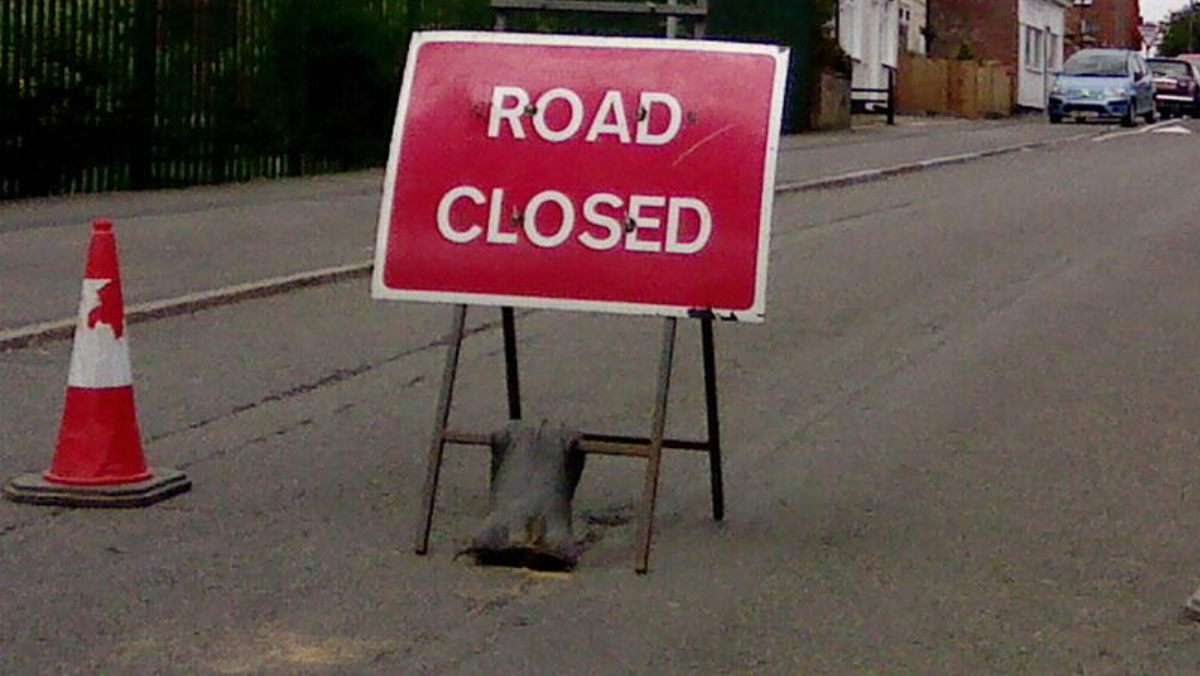
Property taxes can be a substantial financial burden for homeowners and commercial property owners, especially when your property is overvalued by the county appraisal district. An unfair assessment can inflate your tax bill by hundreds or thousands of dollars annually. Filing a property tax appeal—also known as a protest—allows you to challenge this valuation, but success depends on presenting a compelling case. While you can protest on your own, hiring a property tax consultant significantly increases your chances of securing a lower assessment. These professionals leverage their expertise, data, and strategic approach to build a robust case for your appeal. This comprehensive guide explores how consultants construct a strong property tax appeal, detailing their methods, tools, and strategies to help you understand their value and maximize your savings.
Why a Strong Case Matters
A property tax appeal is your opportunity to prove that your property’s assessed value is too high, either because it exceeds the fair market value or is unequal compared to similar properties. The process typically involves an informal review with an appraiser and, if necessary, a formal hearing before the Appraisal Review Board (ARB), an independent panel that decides your case. To succeed, you need clear, persuasive evidence presented within strict time limits—often just 5–10 minutes at the hearing. Mistakes, weak evidence, or poor preparation can undermine your appeal, leaving you stuck with an inflated tax bill.
Property tax consultants are experts in this process, with specialized knowledge of local appraisal methods, access to robust data, and experience presenting cases effectively. By building a strong case, they can reduce your assessed value, saving you money on your taxes. For example, lowering a $500,000 assessment by $50,000 at a 2.5% tax rate saves $1,250 annually. This guide breaks down the key strategies consultants use to achieve these results.
How Consultants Build a Strong Case
Consultants follow a systematic approach to construct a compelling appeal, combining research, analysis, and presentation skills. Here’s a detailed look at their methods:
1. Thorough Review of Your Appraisal Notice
The first step in any appeal is understanding your property’s assessment. Consultants meticulously review your appraisal notice to identify:
- Errors in Property Details: Mistakes like incorrect square footage, wrong number of bedrooms, or misclassified property type (e.g., residential listed as commercial) can inflate your value.
- Missing Exemptions: Unclaimed exemptions, such as homestead, senior citizen, or veteran exemptions, can increase your taxable value unnecessarily.
- Assessed Value vs. Market Trends: They compare your assessed value to recent sales in your area to determine if it’s unreasonably high.
How They Do It: Consultants cross-reference your notice with public records, property databases, and their own market knowledge to spot discrepancies. For example, if your home is listed as 3,000 square feet but is actually 2,800, they’ll document this error as a basis for a reduction.
Impact: Correcting errors alone can lead to significant savings, and identifying overvaluation sets the stage for a market-based appeal.
2. Gathering Robust Evidence
The strength of your appeal hinges on evidence that proves your property’s assessed value is too high. Consultants collect and analyze a wide range of data to build a persuasive case, including:
- Comparable Sales (Comps): They identify 3–5 recent sales (typically within 6–12 months) of properties similar to yours in size, age, location, and condition that sold for less than your assessed value. Unlike public websites like Zillow, consultants use professional databases (e.g., MLS or CoStar) for accurate, detailed sales data.
- Property Condition Documentation: They assess your property for issues that reduce its value, such as foundation cracks, outdated systems, or storm damage. They may visit your property or request photos, then obtain repair estimates to quantify the impact.
- Market Trends: Consultants analyze local market conditions, such as declining property values or oversupply, to argue that your assessment doesn’t reflect current realities.
- Unequal Appraisal Evidence: If your property is assessed higher than similar properties in your neighborhood, they compile data on these disparities to support an “unequal appraisal” argument.
How They Do It: Consultants leverage their access to proprietary data sources, local market expertise, and analytical tools to select the most relevant evidence. They prioritize comps that closely match your property and adjust for differences (e.g., lot size or upgrades) to strengthen their case.
Impact: High-quality evidence, like well-chosen comps or documented damage, can convince appraisers or the ARB to lower your value significantly.
3. Crafting a Market-Based Valuation Argument
Consultants use their evidence to construct a clear, data-driven argument that your property’s market value is lower than the assessed value. This involves:
- Market Value Approach: They calculate a proposed value based on comps, adjusting for differences like square footage or condition. For example, if three similar homes sold for $400,000, $410,000, and $405,000, they might argue your $450,000 assessment should be closer to $405,000.
- Condition-Based Adjustments: They quantify how issues like an outdated kitchen or roof damage reduce your property’s value compared to comps, often using repair estimates.
- Local Market Context: They highlight trends, such as a slowing real estate market, to support a lower valuation.
How They Do It: Consultants create a concise report or presentation summarizing their findings, often including tables comparing your assessed value to comps and visual aids like photos or charts. They tailor their argument to the appraisal district’s preferred valuation methods.
Impact: A well-crafted valuation argument, grounded in data, is more likely to persuade appraisers or the ARB to reduce your assessment.
4. Leveraging Local Expertise
Appraisal districts vary widely by state and county, with unique valuation methods, evidence preferences, and procedural rules. Consultants bring local expertise that enhances your appeal, including:
- Knowledge of District Practices: They know how your district calculates values (e.g., mass appraisal models) and what types of evidence carry the most weight.
- Familiarity with ARB Dynamics: They understand the ARB’s expectations, common questions, and decision-making patterns, allowing them to tailor their presentation.
- Relationships with Appraisers: While not influencing decisions, their professional rapport with district staff can facilitate smoother negotiations during informal reviews.
How They Do It: Consultants stay updated on local tax laws, attend ARB hearings regularly, and network with industry professionals to maintain their edge. For example, they might know that your county prioritizes comps within a half-mile radius or responds well to visual evidence.
Impact: Local expertise ensures your case aligns with district and ARB expectations, increasing the likelihood of a favorable outcome.
5. Preparing a Professional Presentation
At the ARB hearing (or informal review), consultants present your case clearly and persuasively within the limited time allowed. Their preparation includes:
- Organized Evidence: They compile a professional packet with comps, photos, repair estimates, and a summary report, making it easy for appraisers or the ARB to follow.
- Concise Delivery: They practice a 5–7 minute presentation that highlights key points, anticipates counterarguments, and requests a specific lower value.
- Visual Aids: They use charts, maps, or slides to illustrate comps or property issues, making the case more compelling.
- Professional Demeanor: They remain calm, respectful, and factual, even under questioning, to maintain credibility.
How They Do It: Consultants draw on their experience from dozens or hundreds of hearings to structure their presentation for maximum impact. They rehearse responses to common questions, like why certain comps were chosen.
Impact: A polished presentation can sway the ARB, especially when compared to less-prepared DIY efforts, leading to larger reductions.
6. Negotiating During Informal Reviews
Many appeals are resolved during an informal review with an appraiser before reaching the ARB. Consultants excel at negotiating in this setting by:
- Presenting Evidence Early: They share their strongest evidence upfront to encourage a quick resolution.
- Understanding Appraiser Perspectives: They know what appraisers look for and frame their argument accordingly (e.g., focusing on comps if the district prioritizes sales data).
- Proposing Reasonable Adjustments: They suggest a fair value that aligns with evidence, increasing the likelihood of agreement.
How They Do It: Consultants use their rapport with district staff and knowledge of local practices to negotiate effectively, often securing reductions without a hearing.
Impact: Resolving the appeal informally saves time and can yield significant reductions without the formality of an ARB hearing.
7. Identifying and Maximizing Exemptions
In addition to lowering your assessed value, consultants check for unclaimed exemptions that reduce your taxable value, such as:
- Homestead Exemption: Lowers the taxable value of your primary residence.
- Senior or Disabled Exemptions: Offers additional reductions or tax freezes.
- Veteran Exemptions: Provides partial or full relief for qualifying veterans.
- Agricultural or Historical Exemptions: Applies to specific property uses.
How They Do It: Consultants review your property record and ask about your eligibility, then file applications or correct errors to ensure exemptions are applied.
Impact: Exemptions can save hundreds or thousands annually, compounding the savings from a reduced assessment.
8. Following Up After the Appeal
After the appeal, consultants ensure the outcome is implemented correctly and plan for future years:
- Verify the New Assessment: They check that the district applies the agreed-upon value to your tax bill.
- Advise on Appeals: If the ARB ruling is unfavorable, they recommend options like binding arbitration or district court (weighing costs vs. savings).
- Plan for Annual Protests: They monitor your property’s value to file protests in future years, keeping your assessment fair.
How They Do It: Consultants maintain detailed records and stay in contact with the district to confirm compliance. They may offer ongoing services to manage annual protests.
Impact: Proper follow-up ensures you receive your full savings and prevents future overvaluations.
Why Hire a Consultant?
Consultants build stronger cases than most property owners can on their own due to:
- Access to Data: Professional databases provide more accurate comps than public websites.
- Local Expertise: Knowledge of your district’s quirks and ARB tendencies.
- Time Savings: Handling research, filing, and hearings frees you from a complex process.
- Higher Success Rates: Their experience and presentation skills lead to better outcomes.
- Contingency Fees: Many charge only if they reduce your taxes (e.g., 30–50% of savings), minimizing risk.
Example: A consultant reduces a $600,000 assessment to $550,000 and secures a $25,000 homestead exemption. At a 2% tax rate, the total savings are $1,500 annually. A 40% contingency fee ($600) leaves a net savings of $900.
Real-World Example
Consider John, a homeowner with a $450,000 assessment he believes is too high. His consultant:
- Finds comps showing similar homes sold for $410,000–$420,000.
- Documents a leaky roof with a $10,000 repair estimate.
- Presents a polished case at the ARB, arguing for a $415,000 value.
- Secures a $30,000 reduction and a missed homestead exemption ($25,000).
At a 2.5% tax rate, John saves $1,375 annually ($750 from the reduction, $625 from the exemption), netting $825 after a $550 contingency fee.
Choosing the Right Consultant
To ensure a strong appeal, select a consultant with:
- Local Experience: Familiarity with your county’s appraisal district.
- Credentials: Certifications or membership in groups like the National Association of Property Tax Professionals.
- Transparent Fees: Preferably contingency-based, with clear terms.
- Positive Reviews: Check online feedback or ask for references.
Action Tip: Contact consultants for a free consultation to assess their approach and your case’s potential.
Taking the First Step
If you suspect your property is overvalued, hiring a property tax consultant can build a strong appeal and save you money. Start by reviewing your appraisal notice and comparing your assessed value to recent sales. Then, reach out to a reputable consultant to discuss your case. With their expertise, you can navigate the appeal process confidently and achieve a fairer tax bill.
For more information, visit your county appraisal district’s website or contact a licensed property tax consultant for personalized advice.
Disclaimer: Property tax laws and procedures vary by state and county. Always verify local rules with your appraisal district or a qualified professional. This guide is for informational purposes and does not constitute legal advice.
You Might Also Like

April 25, 2025

April 24, 2025
Popular Categories
Popular News

Collin County News
Real Estate Market Update: 183 Homes Sold in Prosper and Celina in March 2025 April 26, 2025
Collin County News
McKinney Unveils $500 Million Water Infrastructure Plan to Support Rapid Growth April 26, 2025
Frisco
Road Closure Alert: Northbound Dallas Parkway in Frisco to Close This Weekend April 26, 2025
Frisco
Frisco Voters to Decide on $160M Funding for New Center for the Arts April 26, 2025
Property Tax Tips
The Importance of Timely Property Tax Protest Filing April 25, 2025
Grapevine - Colleyville - Southlake
American Airlines Launches New DFW to Puerto Escondido Flight Starting December 2025 April 25, 2025
Collin County News
McKinney ISD Earns ‘B’ Rating from Texas Education Agency for 2022-23 School Year April 25, 2025
Property Tax Tips
Missed the Protest Deadline? Here’s What to Do April 24, 2025





